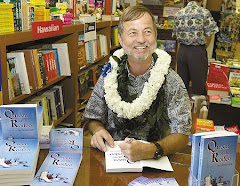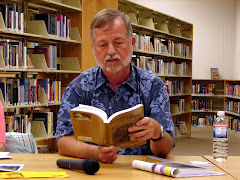“It’s an amazing story. They talk about it all the time. The players keep saying, ‘It’s not where you start, but where you finish.' "
... Brandi Chastain, Beijing 2008
Immediately after the emotional ending of the Olympic women’s soccer gold medal match in Beijing, as the cameras showed the faces of the American players, TV commentator Brandi Chastain gave us one of the many lessons that we can take away from an exhilarating two hours of sport and human drama.
The USA women had just stuck together as a team to edge out favored Brazil for the gold, 1-0. Carli Lloyd’s shot in overtime had eluded the Brazilian goalkeeper’s fingers by inches. Then, in the closing minutes, the Americans had withstood furious attacks on their goal.
After the final whistle Hope Solo (the best name for a goalie ever) walked triumphantly across the field. Solo’s own story is, in itself, one of redemption and validation. In the World Cup last year, although she had performed admirably, Solo was benched by the American coach (soon to be replaced himself) in an unpopular move before a loss to Brazil that knocked her team out of the Cup.
Now, a year later, as we watched Hope Solo and the rest of the victorious American women, Chastain spoke of the team’s mantra, “It’s not where you start, but where you finish.”
In Beijing the American women did not start well. Missing their injured star and top player, Abby Wambach, they opened against Norway and promptly surrendered two goals in the first four minutes. They lost that first game 2-0, but during the following two weeks they dug in and advanced to the gold medal game, where in spite of the incredible skills and flare of the Brazilian players, in spite of a crowd that largely cheered on the favored Brazil, they proved that soccer is a team sport. All the lessons you’ve ever been taught about teamwork and sticking together in tough times were there on that Olympic soccer field.
Then we were treated to the medal ceremony, and for once the network showed the full ceremony, with all the flowers and music and smiles and tears and medals. Were there ever medals. Bronze medals for the young German team, which seemed quite proud of its achievement. Silver medals for the talented Brazilians, the crushing weight of another bitter defeat showing in their faces.
And finally gold medals for the Americans, who had earned their medals and celebration with 120 minutes of gritty team effort against all odds, rewarded for all their hard work in the months and years leading up to the Olympics, and rewarded for their belief in themselves. They had finished incredibly well, on top of the soccer world.
There’s a lesson in there for all of us, in our lives and in our careers. If you’re a writer you might want to put the American team’s mantra on your desk, where you can see it every day: “It’s not where you start, but where you finish.”
So many difficult beginnings in a writer’s life. So many obstacles to overcome. A new story that does not start well. Struggling through a muddled middle, searching for that happy ending. Then a first draft completed, but needing so much revision. Writing is rewriting. You do your best. Then somehow you do better. And after all that there may be no gold medal waiting for you. Where’s the reward?
Take a day away from the keyboard, away from the writing. Take a long walk and think about why you write, why you began writing and continue. Then return and write again. Write from the heart. Tell your story. It’s where you finish that matters.
Then take that mantra and apply it to your characters. If they don’t start well, if the odds are against them, so much the better. We love to root for the underdog. Let them dig down and find their way. Let them find redemption and finish well.
Remember Hope Solo’s story. Remember the American women in Beijing, members of a team that worked together and celebrated together, young athletes who deserved each petal on the roses they held at the end, and each medal they wore proudly around their necks.
Tuesday, September 9, 2008
Subscribe to:
Post Comments (Atom)















1 comment:
You might enjoy this Mr. Media podcast interview with US Olympic gold medal winners Brandi Chastain and Kerri Strug.
Post a Comment